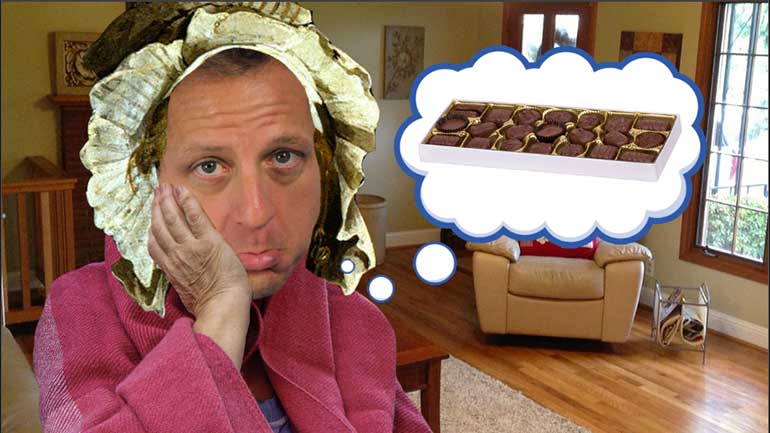ShmoopTube
Where Monty Python meets your 10th grade teacher.
Search Thousands of Shmoop Videos
History of Technology 3: Genetically Modifying Plants and Animals 5 Views
Share It!
Description:
Genetically modifying plants and animals has given us many things, perhaps the most important being glowing fish. We wish we were kidding.
Transcript
- 00:03
Agriculture, when we think of agriculture we don't always think of
- 00:06
super high-tech sciency stuff. we tend to think of old-fashioned tractors and [scientist in a lab]
- 00:11
men wearing overalls maybe some happy cows mooing in the distance . happy
- 00:16
little tree here oh wait that's a Bob Ross. all right well anyway as it turns
- 00:21
out agriculture is actually using some of the most cutting-edge science in town.
Full Transcript
- 00:25
we're talking about the power to mix and match DNA .seriously like making corn
- 00:31
that poisoned bugs. tomatoes that don't rot. in sakko plants that glow. also needs
- 00:37
to wait for evolution when we can jump-started ourselves. what could
- 00:41
possibly go wrong? well the jury is turning out on that one.
- 00:46
genetically modifying plants and animals is definitely a new technology humans
- 00:50
didn't even have the ability to mix and match DNA into the late 1970s. and way
- 00:55
back then people mistakenly thought DNA meant disco now and always. truth is we
- 01:01
didn't even know what DNA was until recently, but even though it didn't [two men with a disco ball]
- 01:05
happen in a petri dish humans have been manipulating genes for a long time. we
- 01:10
could even say that the beginning of Agriculture was an example of humans
- 01:13
artificially selecting which genetic traits they liked best, but the very
- 01:19
least humans were giving evolution and assist. in the early 20th century we got
- 01:24
even more serious about using evolution to our advantage.
- 01:27
scientists in the US Japan and Mexico all started crossbreeding plants in labs [people look skeptical]
- 01:32
to make them produce more food and resist certain diseases. they were all
- 01:36
trying to make high yielding varieties or hy Vees of different grains mostly
- 01:42
wheat and rice to you know feed the world. by the 1960's hy Vees were grown
- 01:47
successfully all over the place grain production skyrocketed in the Green
- 01:51
Revolution kicked into high gear. you might be thinking to yourself well that
- 01:55
sounds like a good place to stop. but when has humanity ever said that? well in
- 02:01
1972 two biochemist named Boyer and Cohen managed to invent recombinant DNA
- 02:08
or r- DNA. r- DNA molecules are artificially made little [terms defined]
- 02:13
pieces of DNA that scientists use to do a little genetic remixing. so basically Moyer and Cohen
- 02:20
figured out how we could use DNA DJ's we can now take DNA from one animal plant
- 02:25
or bacteria and stick them in the middle of some other type bugs animal or plant
- 02:31
DNA. yeah well dogs with elephant parts? no probs
- 02:35
okay it's a little more complicated than cutting and pasting but that's the
- 02:38
general idea. one of the very first things scientists made was artificial
- 02:42
insulin which is the stuff that helps treat diabetes. we used to take it from
- 02:47
pigs and cows just come on what if they need it for right? they were just hogging
- 02:53
it. well anyway r- DNA was also used to make the hepatitis
- 02:58
B vaccine and a human blood clotting factor. oh and also glowing fish here's
- 03:05
what fish the glow under a blacklight just goes to show that some scientists
- 03:09
really aren't taking this very seriously.
Up Next
GED Social Studies 1.1 Civics and Government
Related Videos
When you're about to marry the love of your life, not many things could stop you. However, finding out that your future hubby is keeping his crazy...
Here at Shmoop, we work for kids, not just the bottom line. Founded by David Siminoff and his wife Ellen Siminoff, Shmoop was originally conceived...
ACT Math: Elementary Algebra Drill 4, Problem 5. What is the solution to the problem shown?




